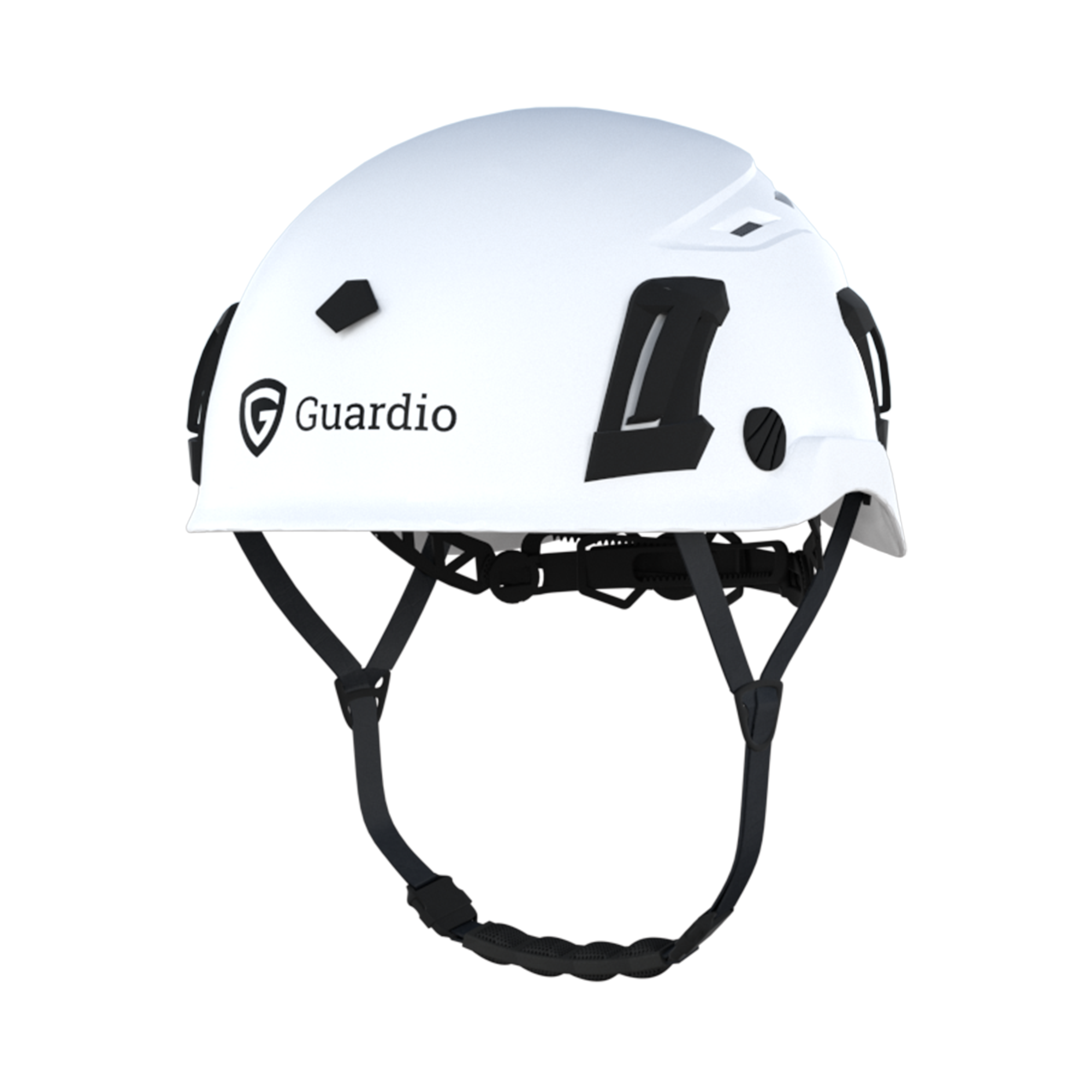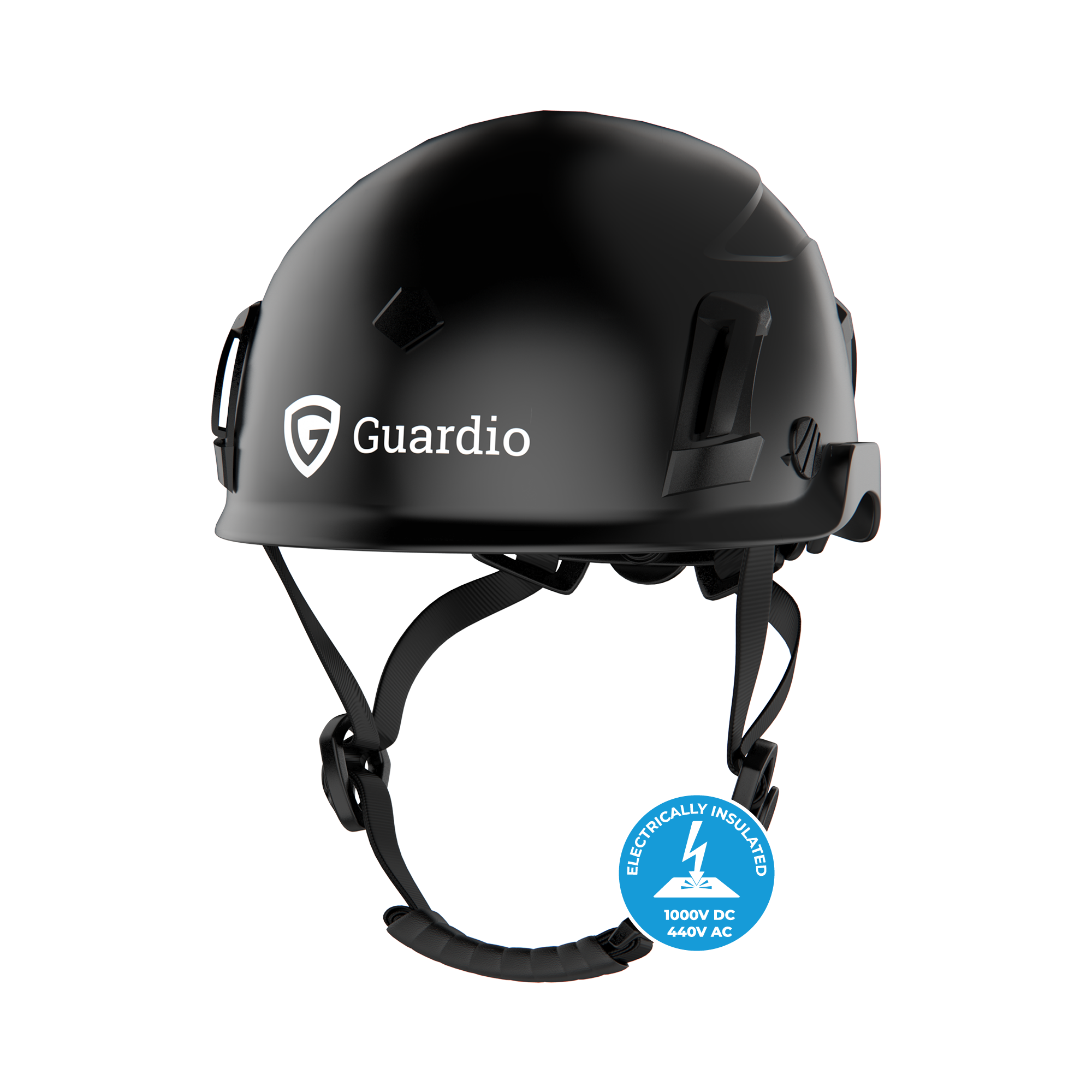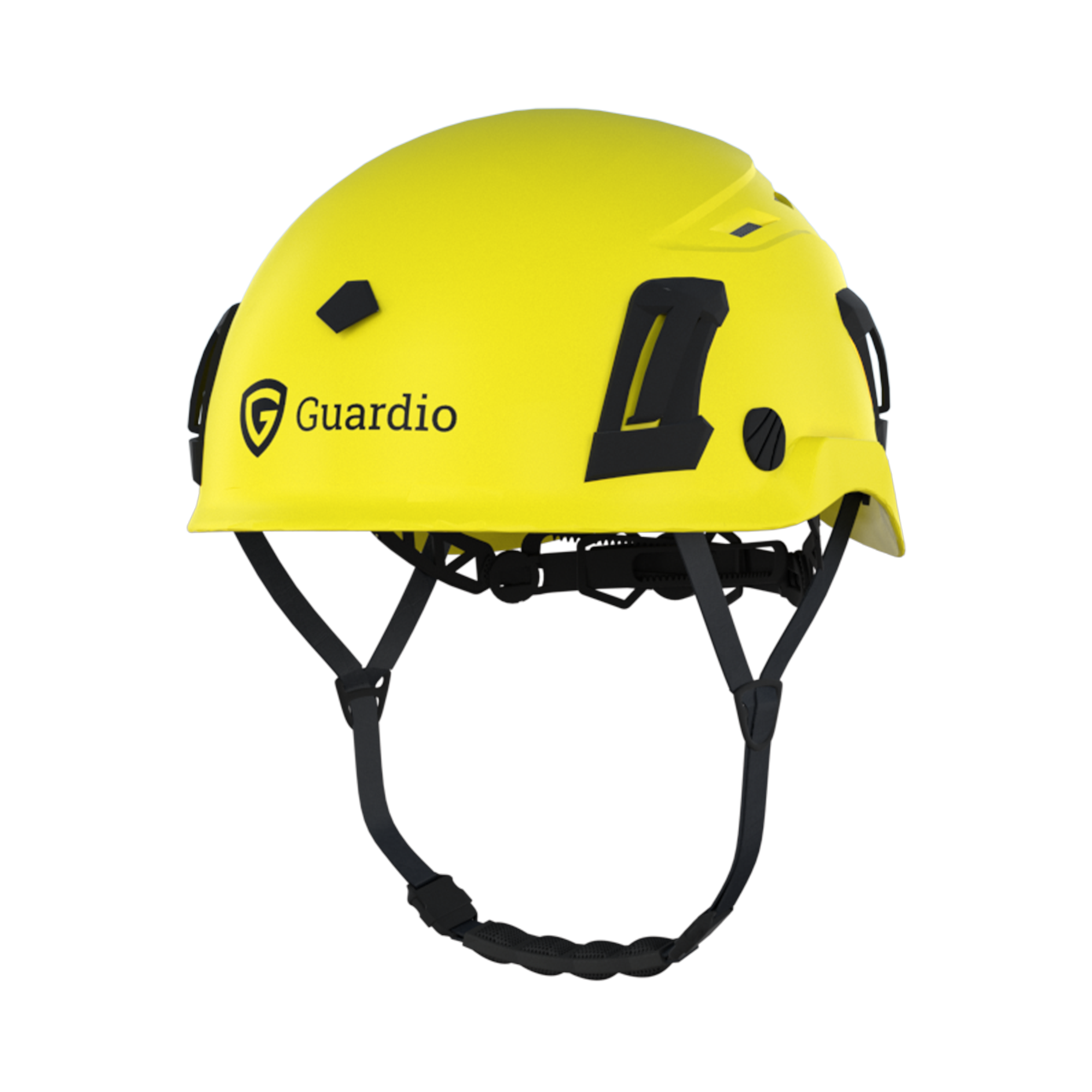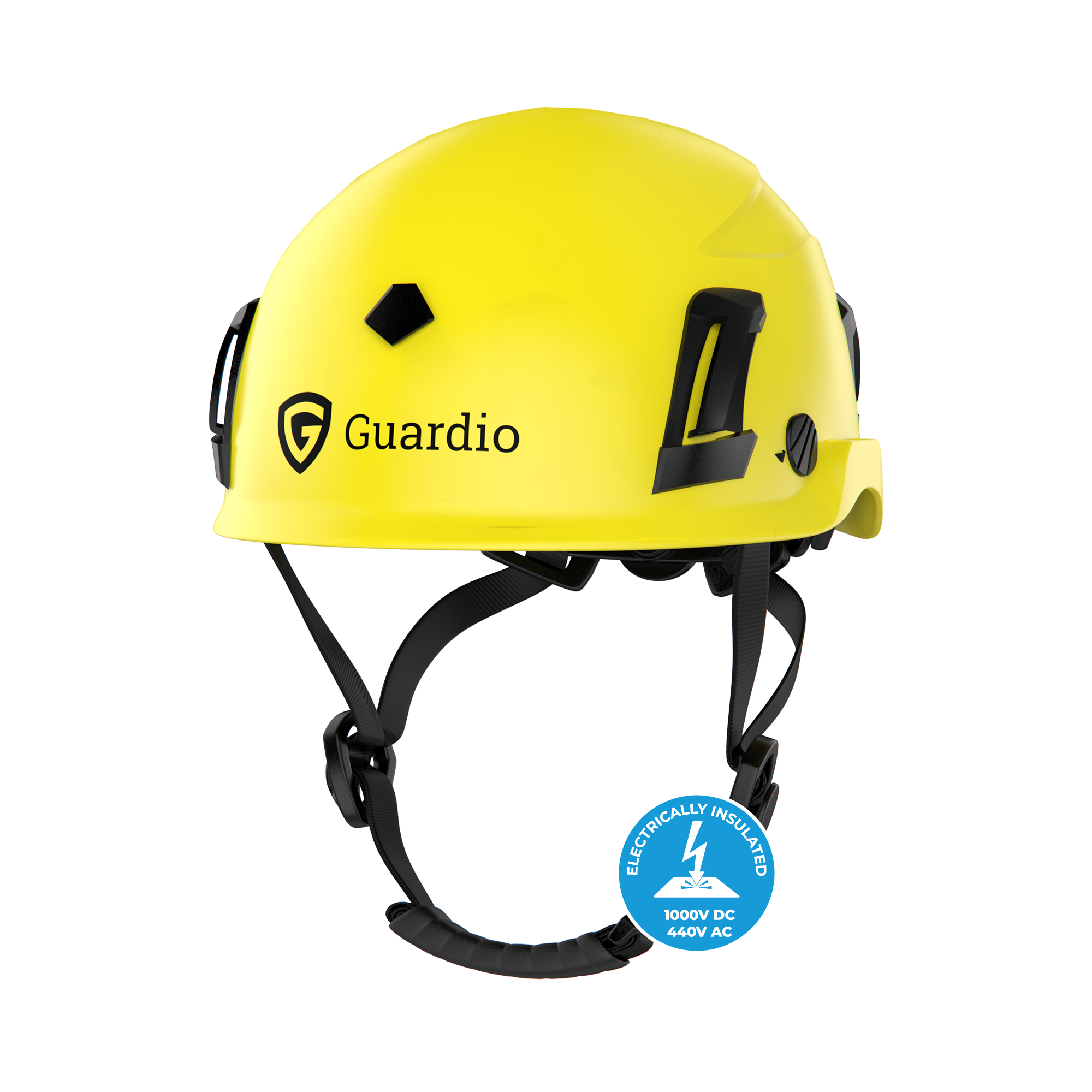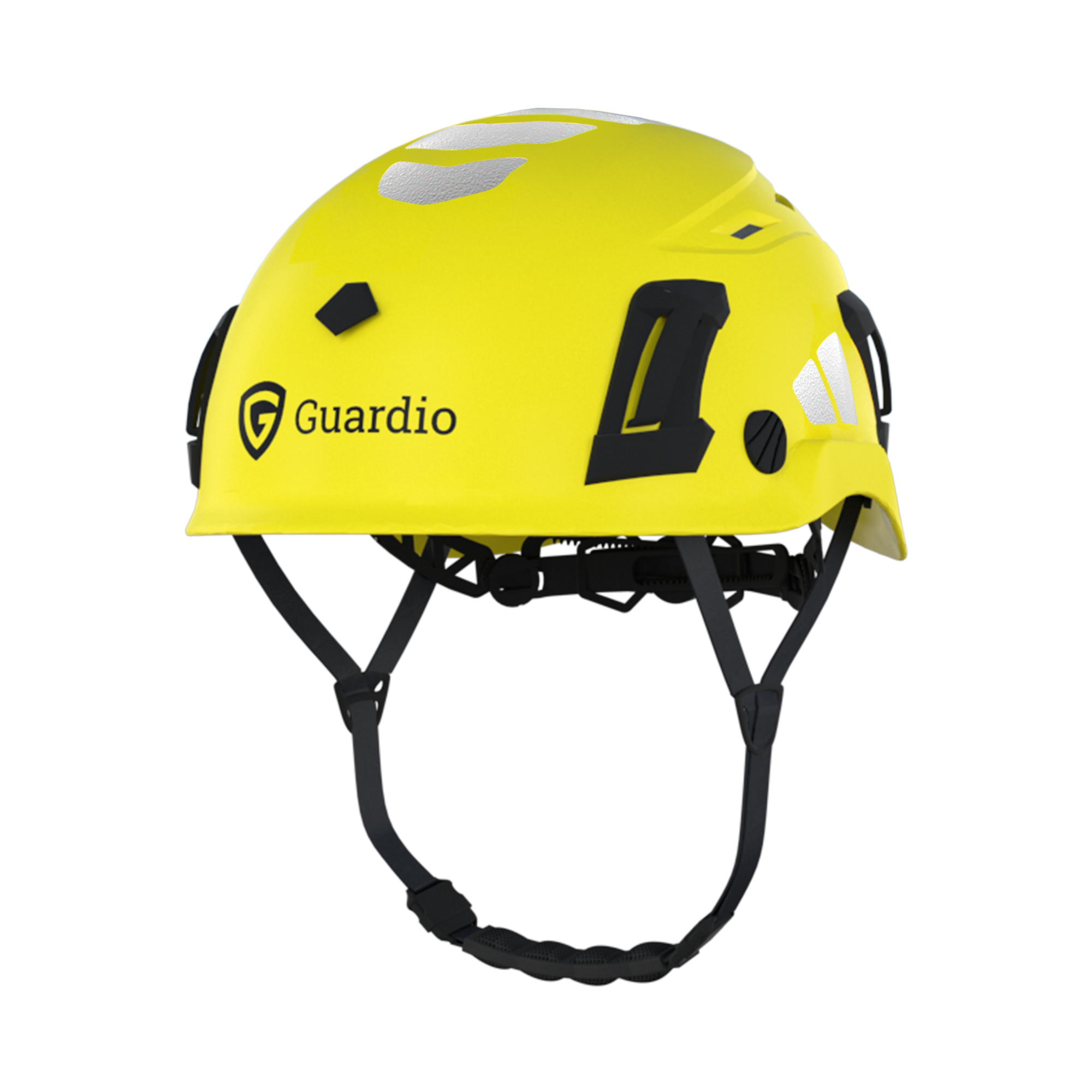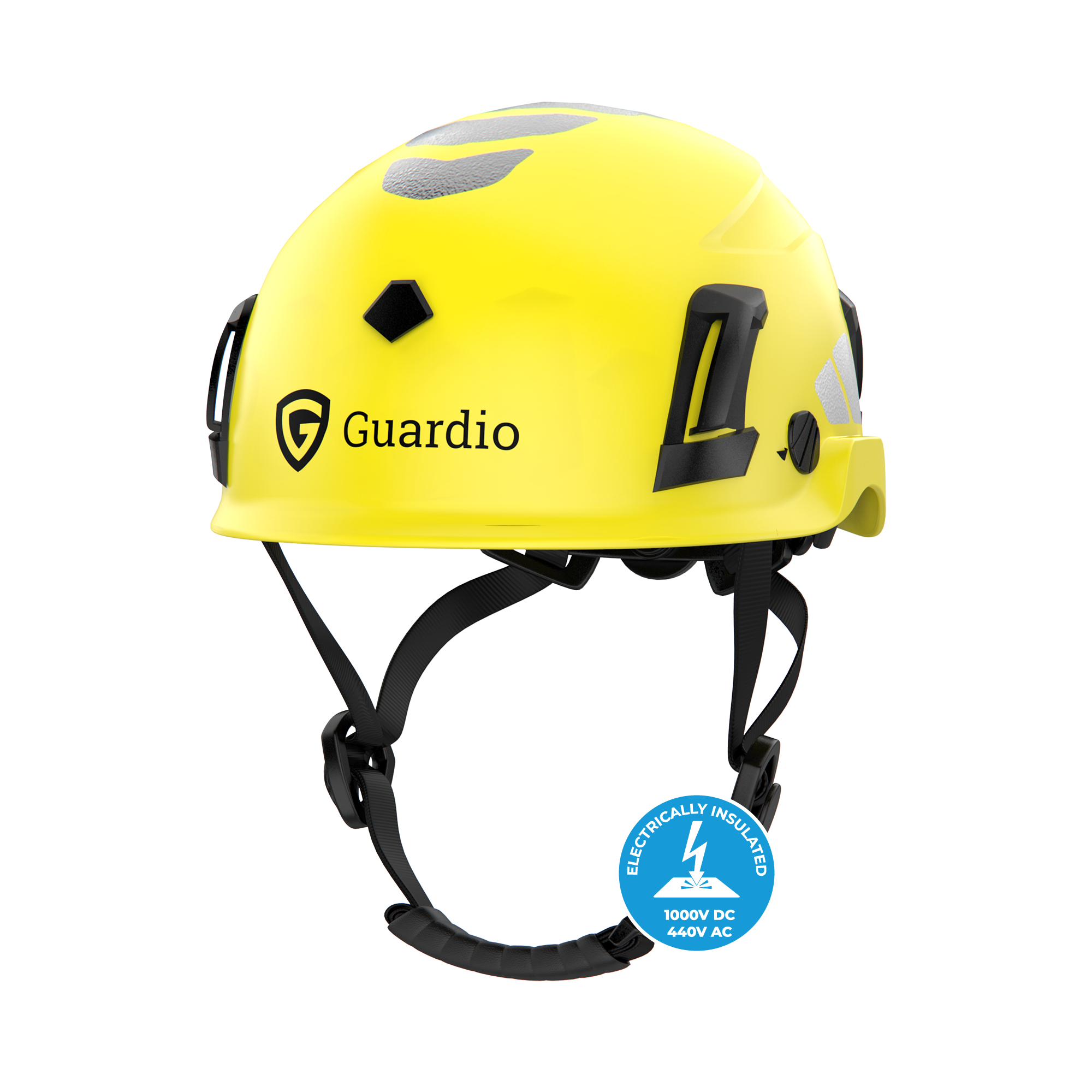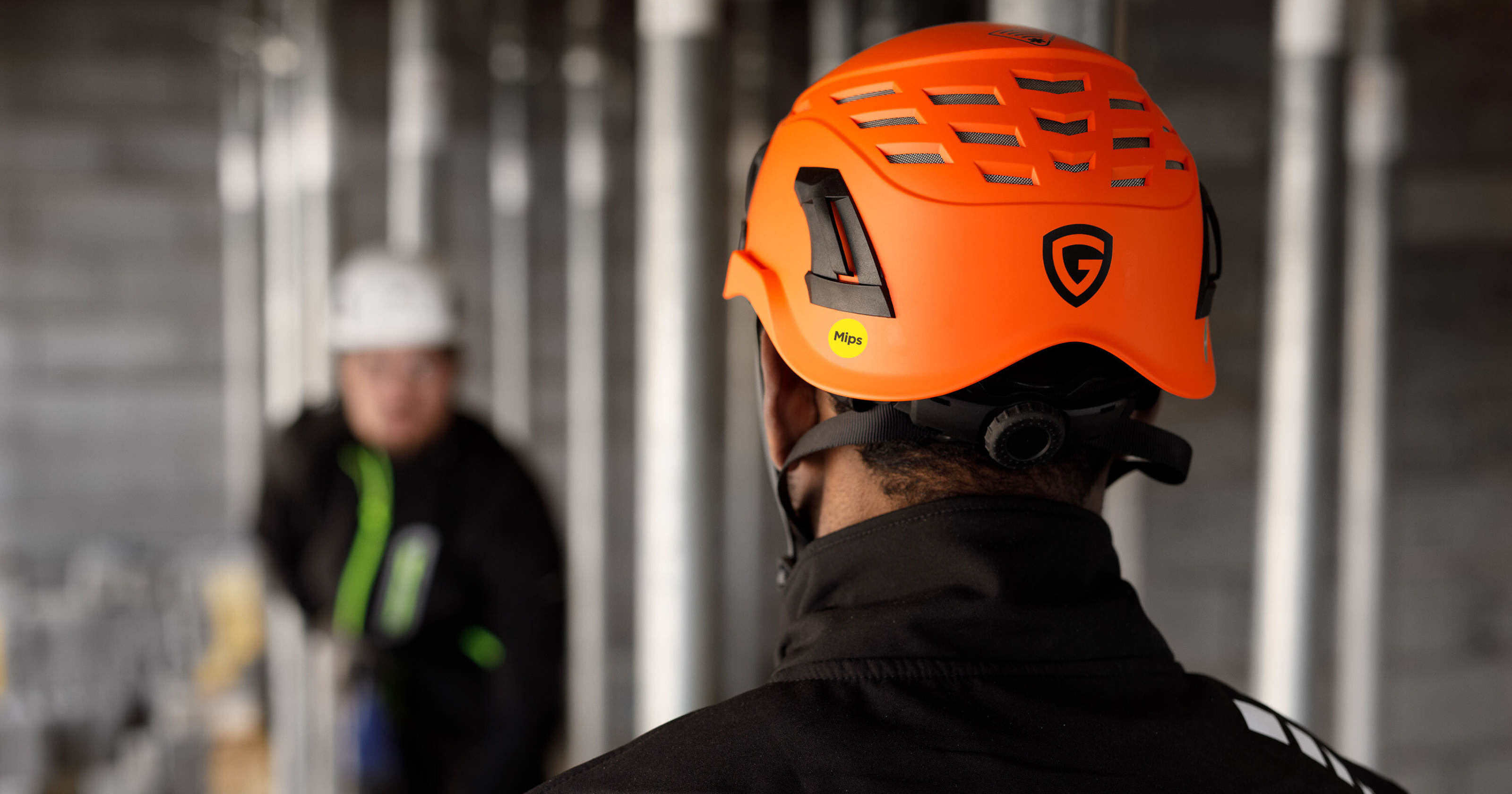
Mips
Safety for Helmets
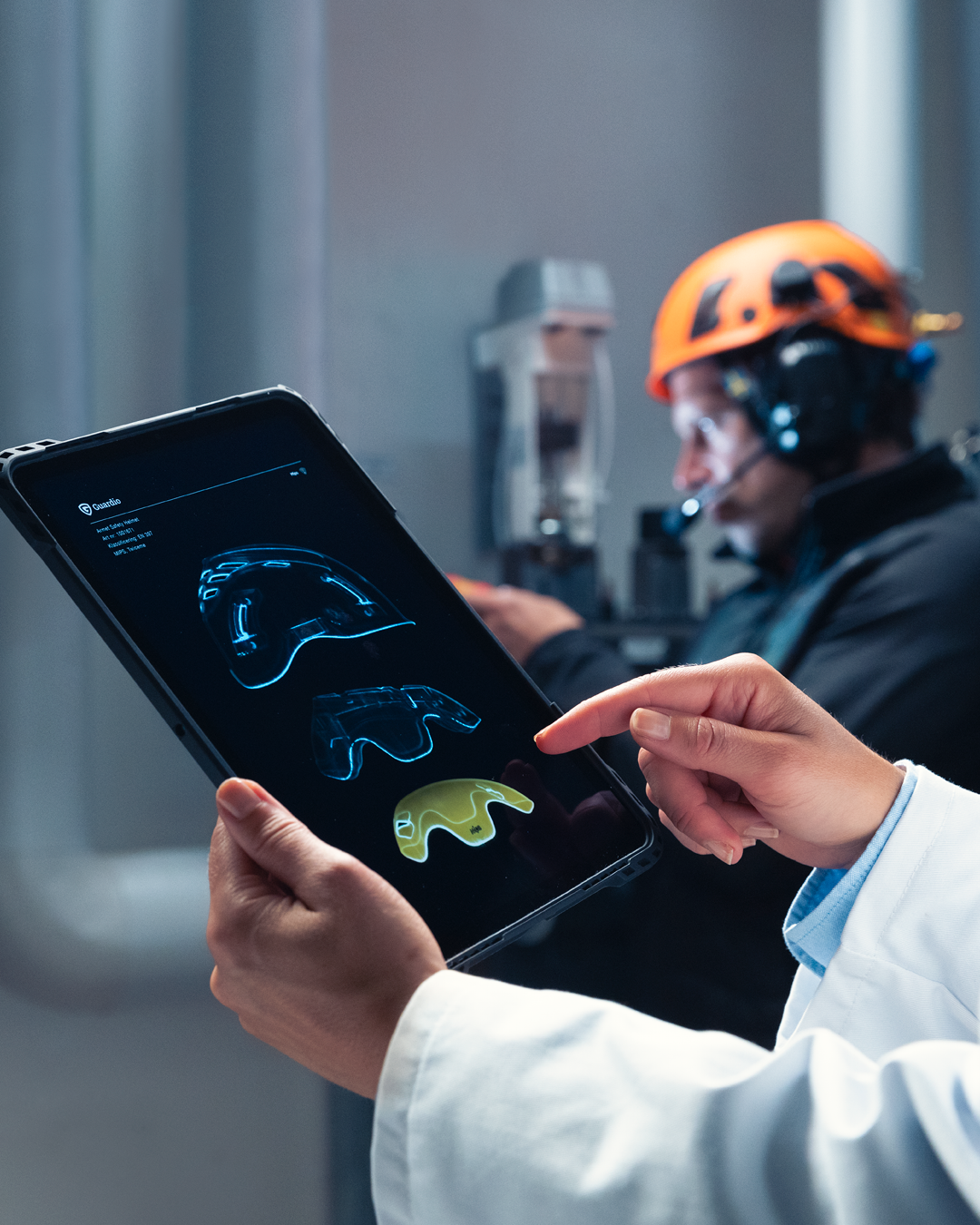
Mips® brain protection system for industrial safety helmets
Angled or off-center impacts can cause the head to rotate suddenly. The Mips system is designed to redirect the harmful rotational motion away from the head and reduce the risk of brain damage.
How does the Mips system work?
In the event of an oblique impact to the helmet, it can cause the head to rotate suddenly and violently. This is a common source of concussion and brain damage. The brain is usually more sensitive to rotational movements than linear movements because it has shear properties similar to water.
The Mips® brain protection system for industrial safety helmets consists of a low-friction layer that is mounted inside the helmet. In the event of an impact to the head and helmet, the low-friction layer is designed to allow a movement of 10–15 mm between the head and the helmet to redirect the rotational movements away from the head, thereby reducing the risk of brain injury.
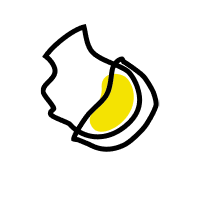
Angled impacts
Impacts can be off-center or angled, which can cause rotational movements towards the head.
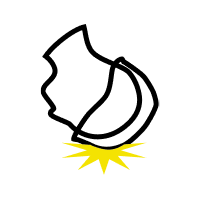
Sensitive brain
Angled or off-center impacts can cause the head to rotate suddenly. Research has shown that this can lead to concussions and other serious brain injuries.
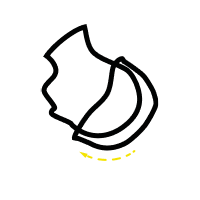
Rotation protection
The Mips system is designed to help redirect the harmful rotational motion away from the head to reduce the risk of brain damage.
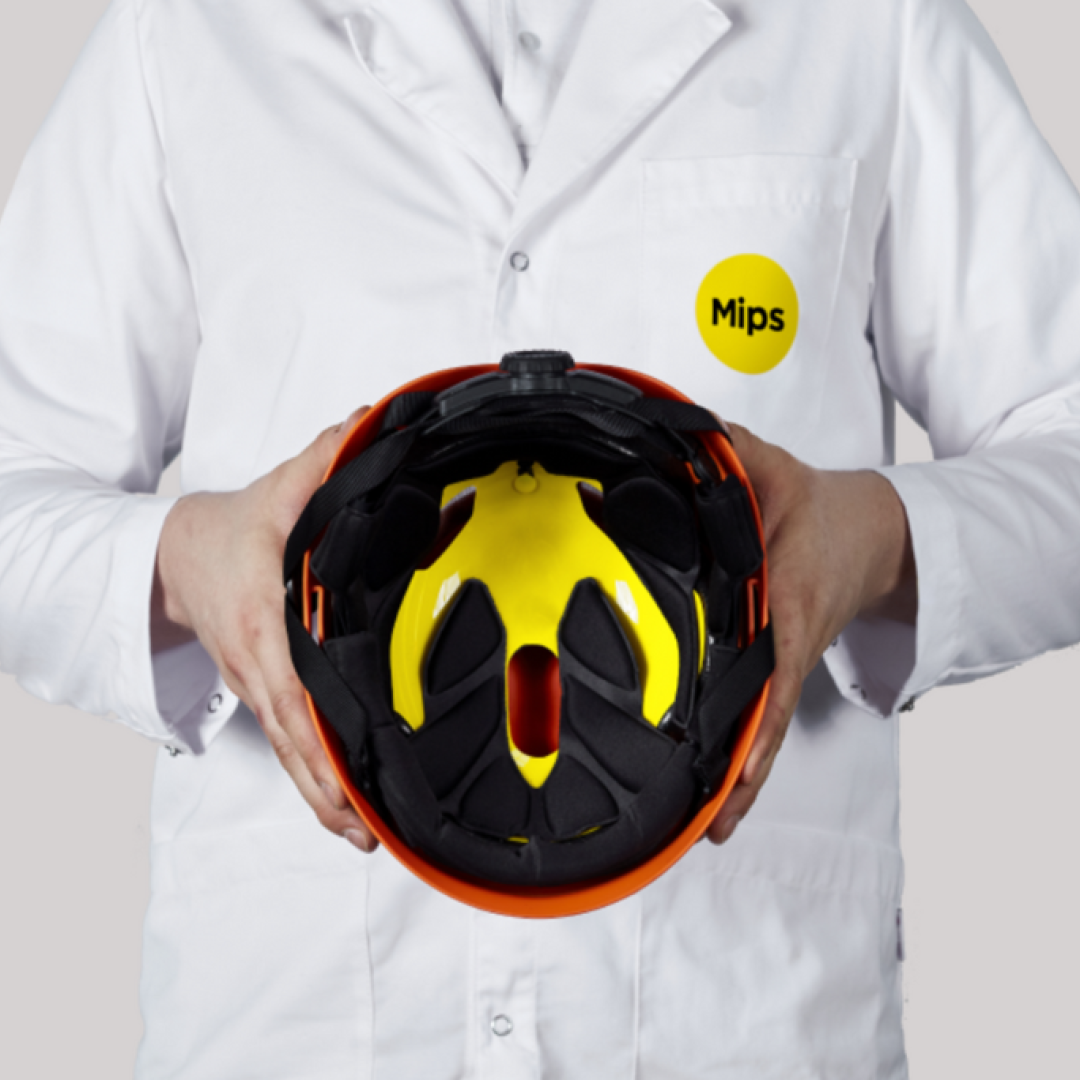
Leader in helmet-based safety
The MIPS low-friction bearing is engineered with precision and designed to seamlessly fit inside safety helmets without affecting comfort or fit.
The science behind Mips
The technology is based on decades of research and development together with the Royal Institute of Technology (KTH) and Karolinska Institutet. Mips has performed over 90,000 tests in its unique test lab and continues to drive the development of helmet-based safety forward.
Global trust of helmet manufacturers
More than 150 helmet manufacturers trust Mips technology and today the system is available in more than 1,000 helmet models worldwide.
